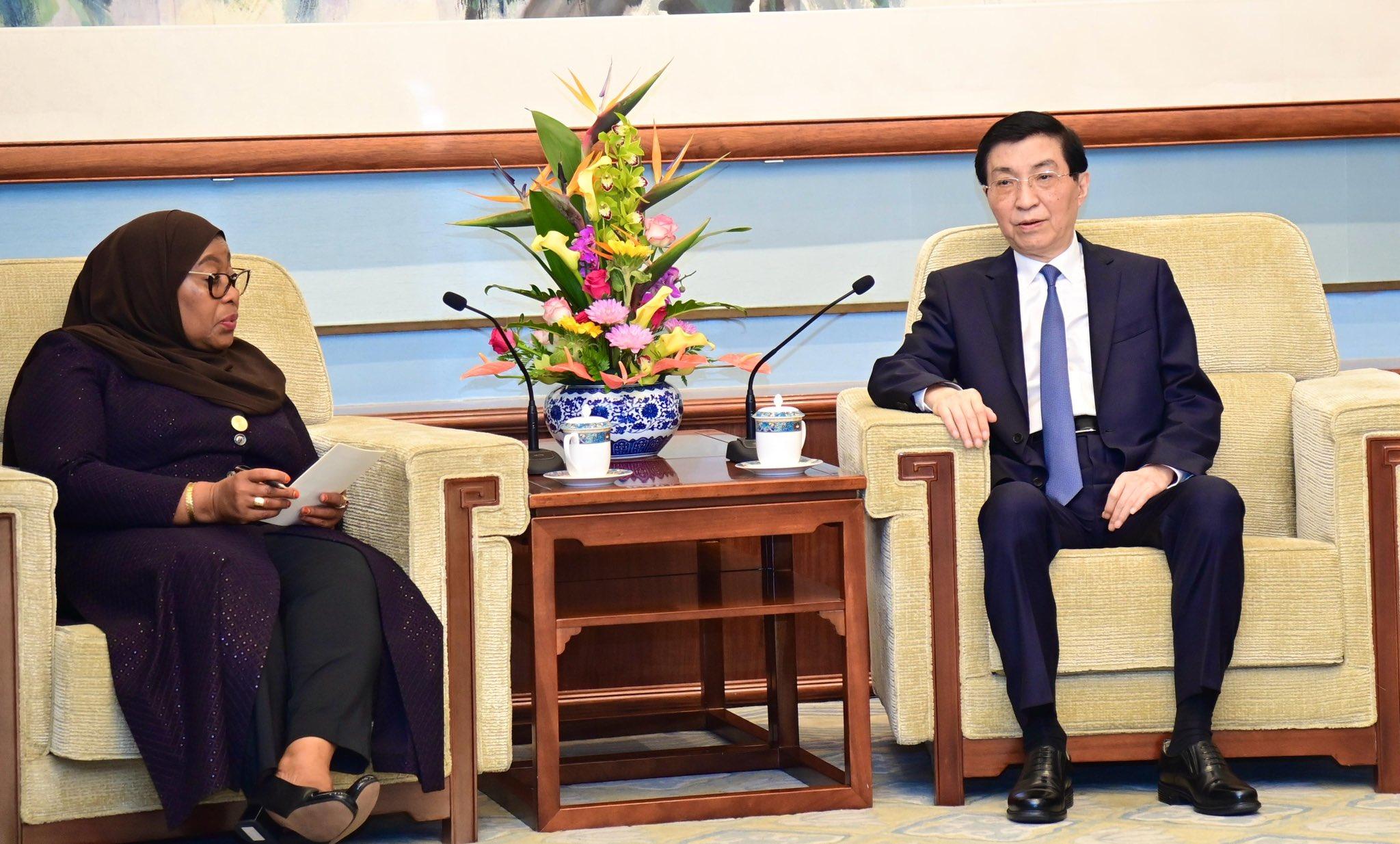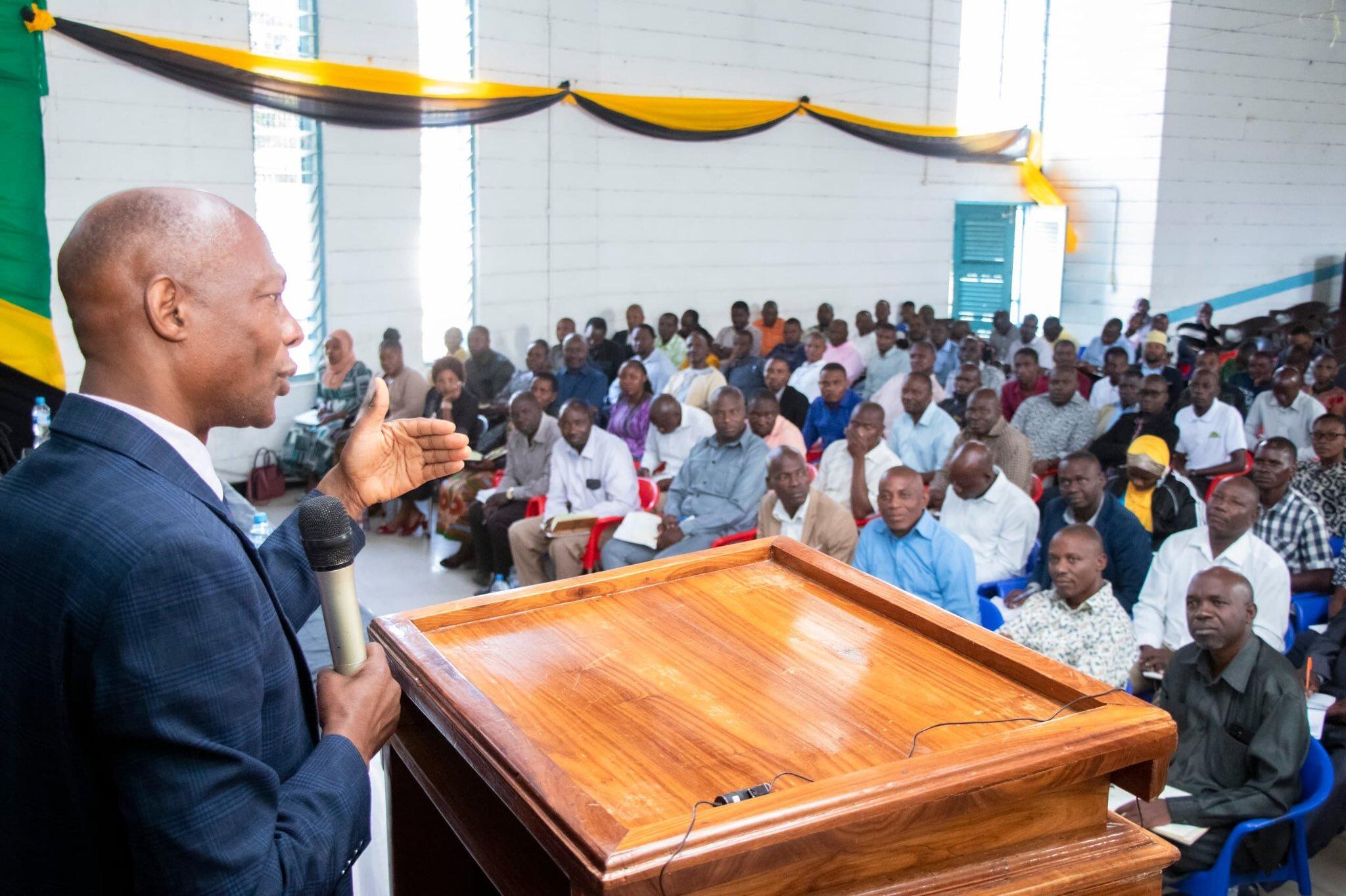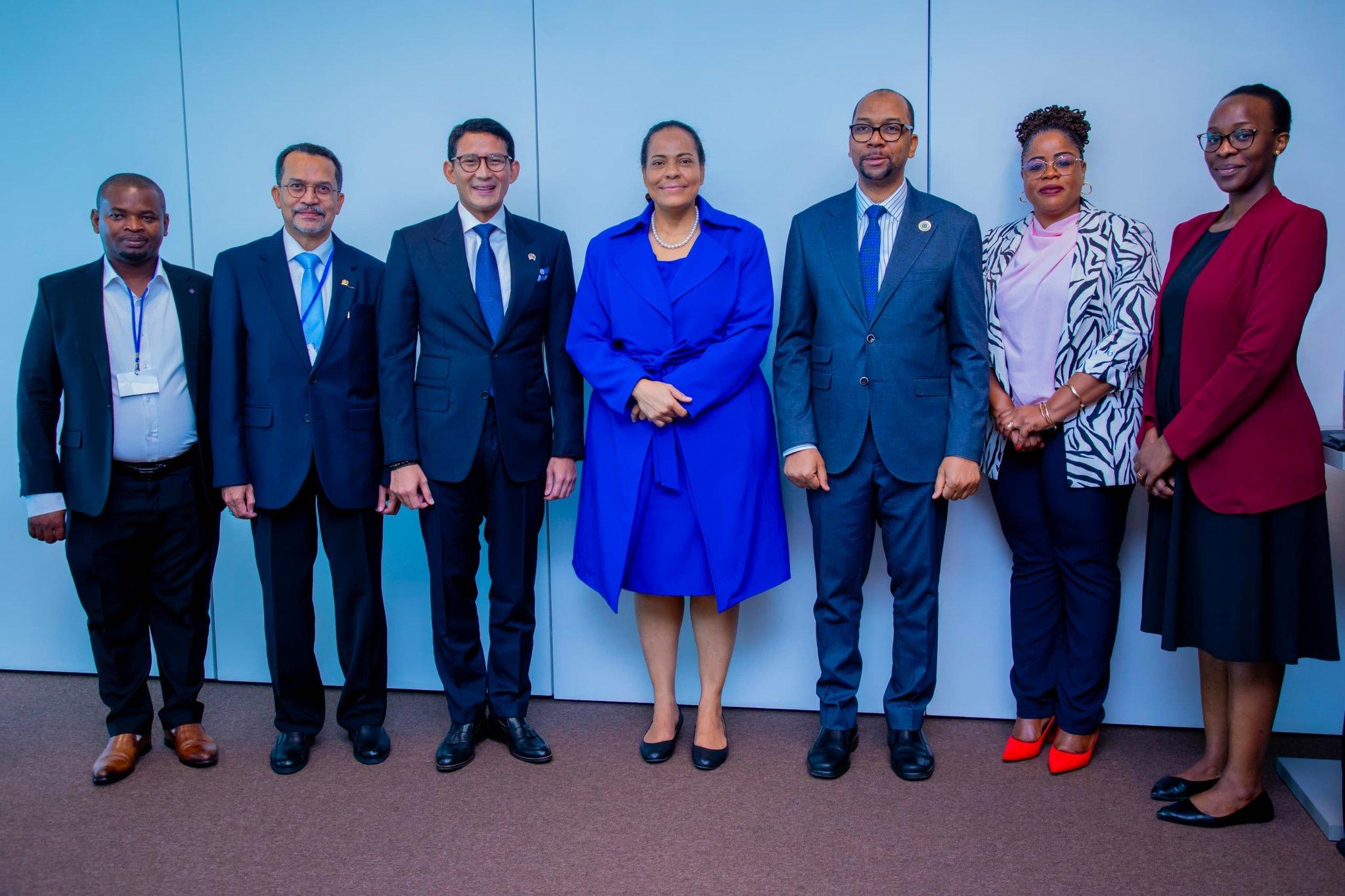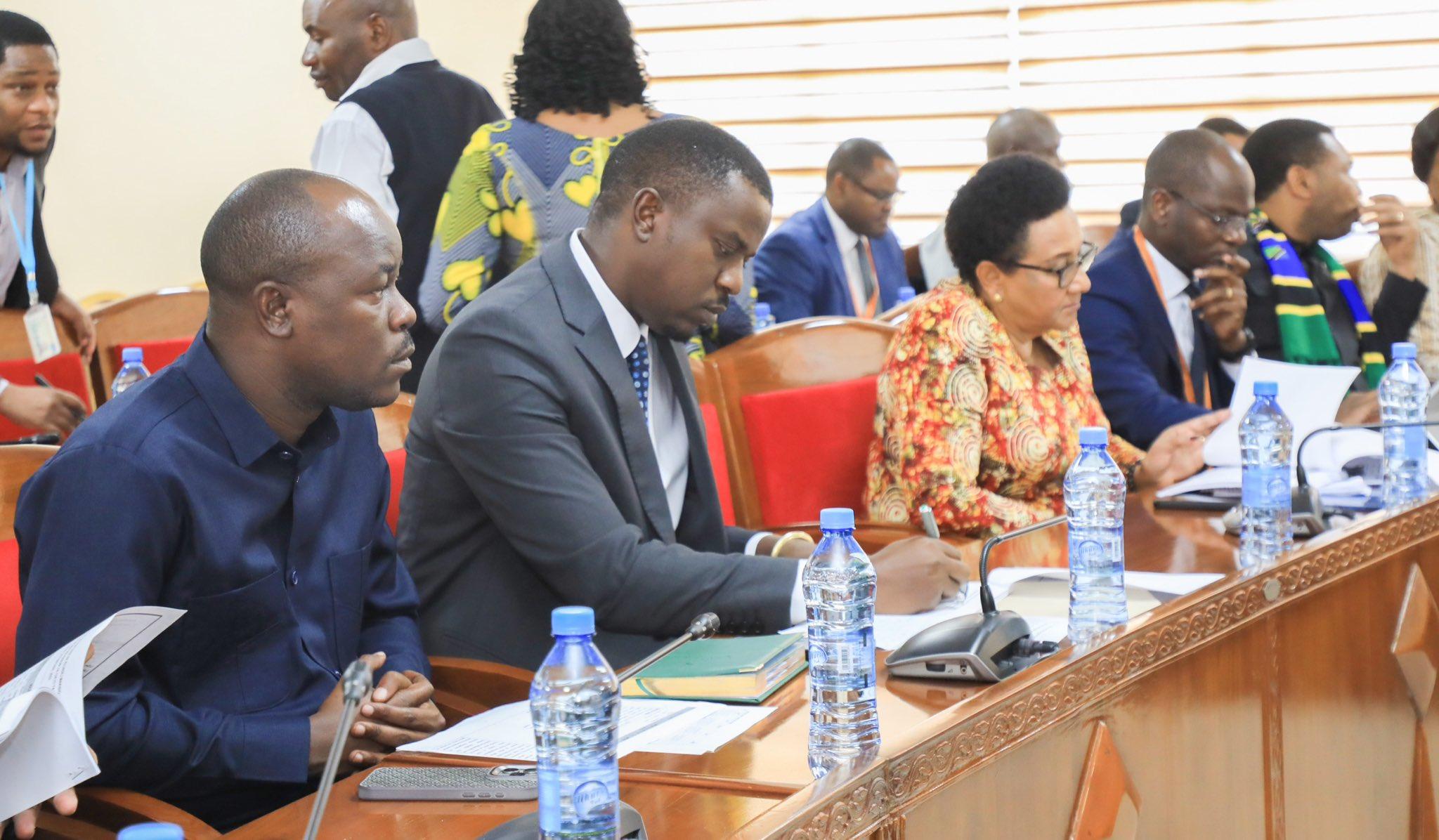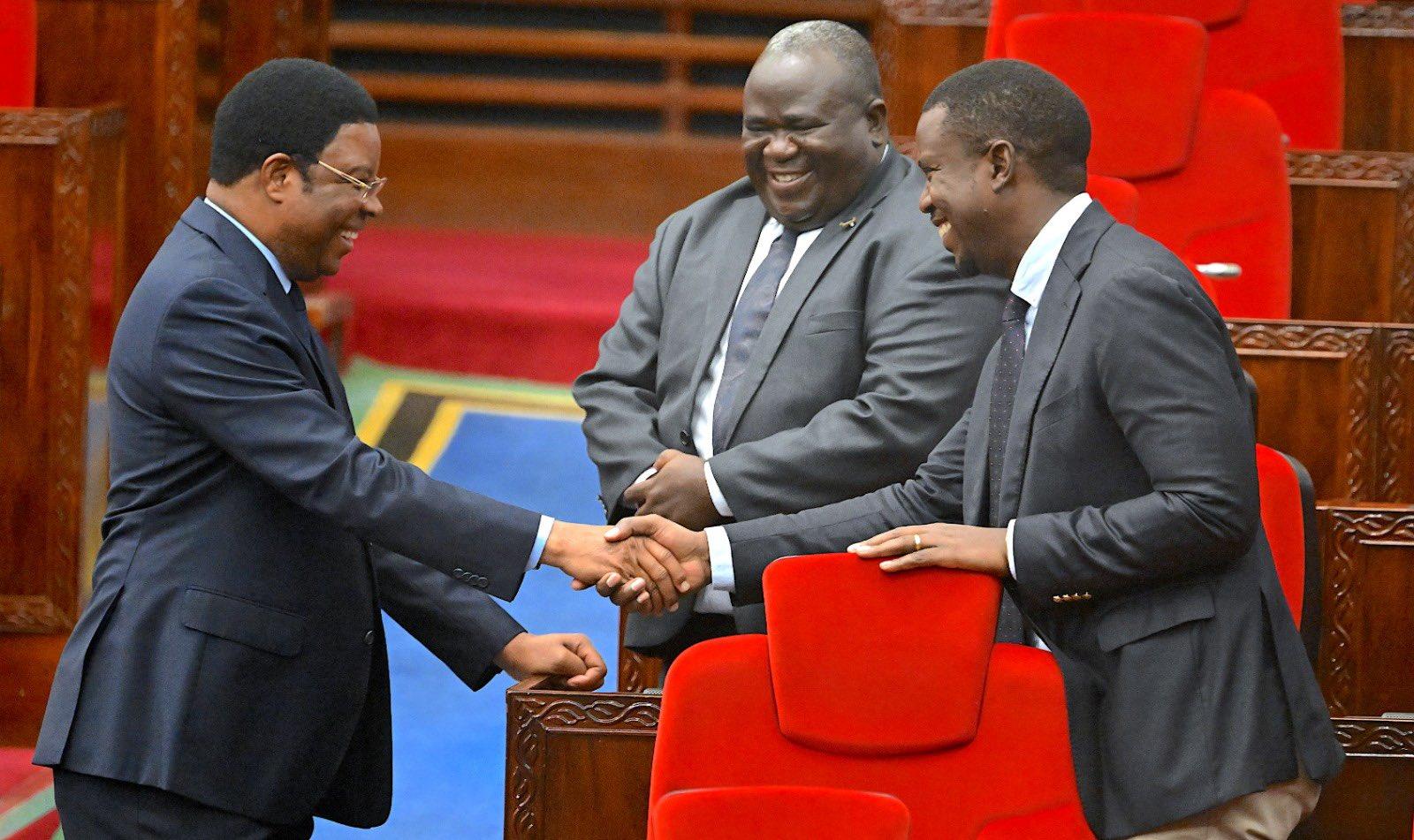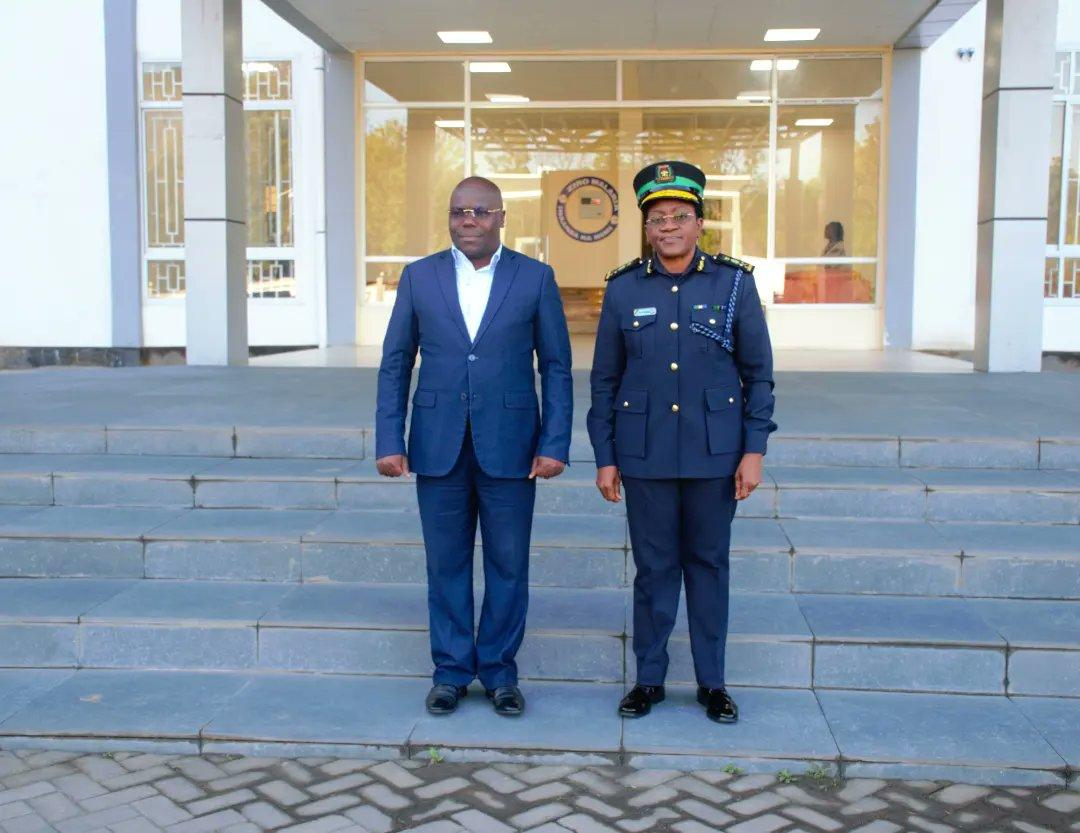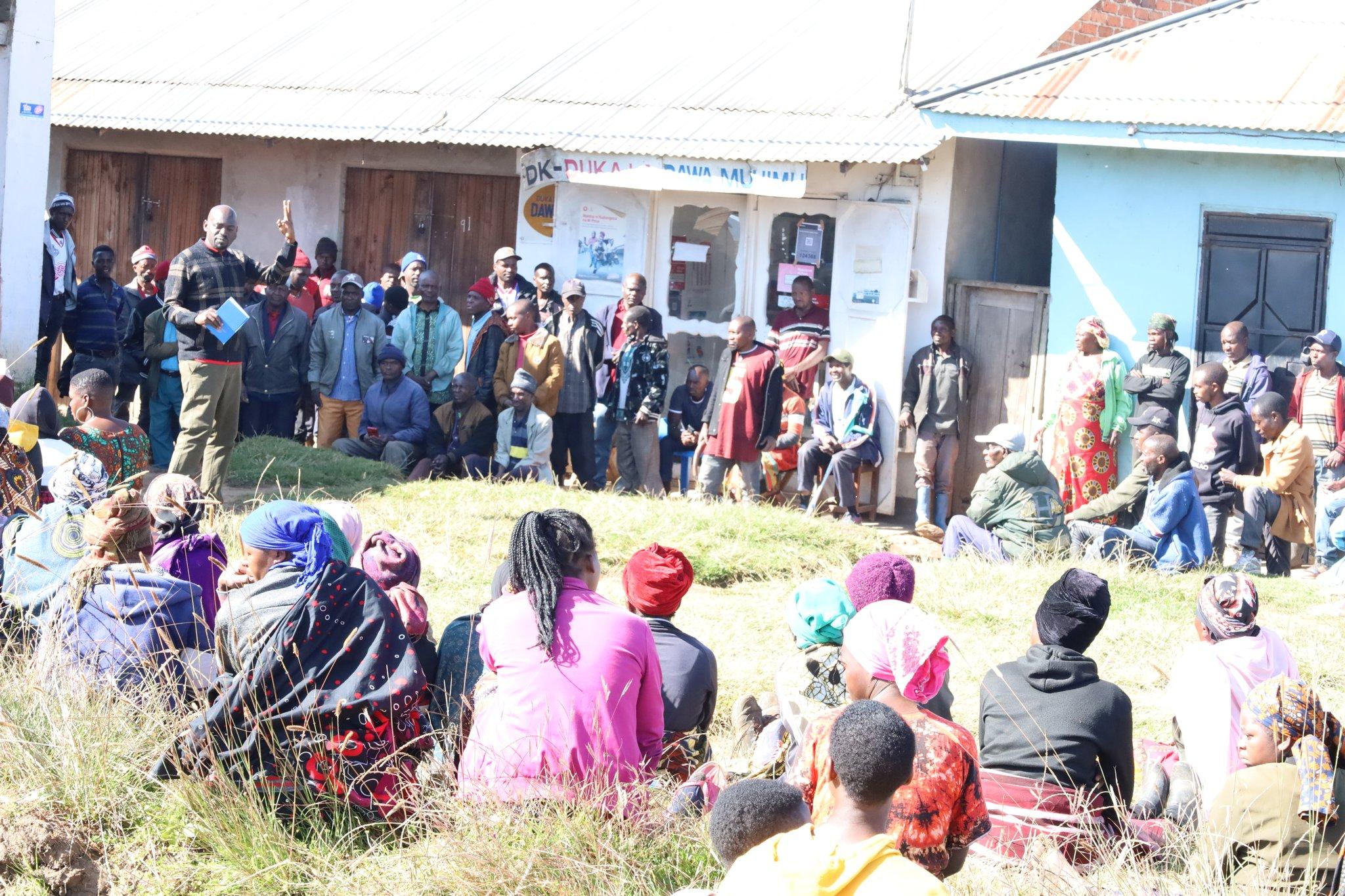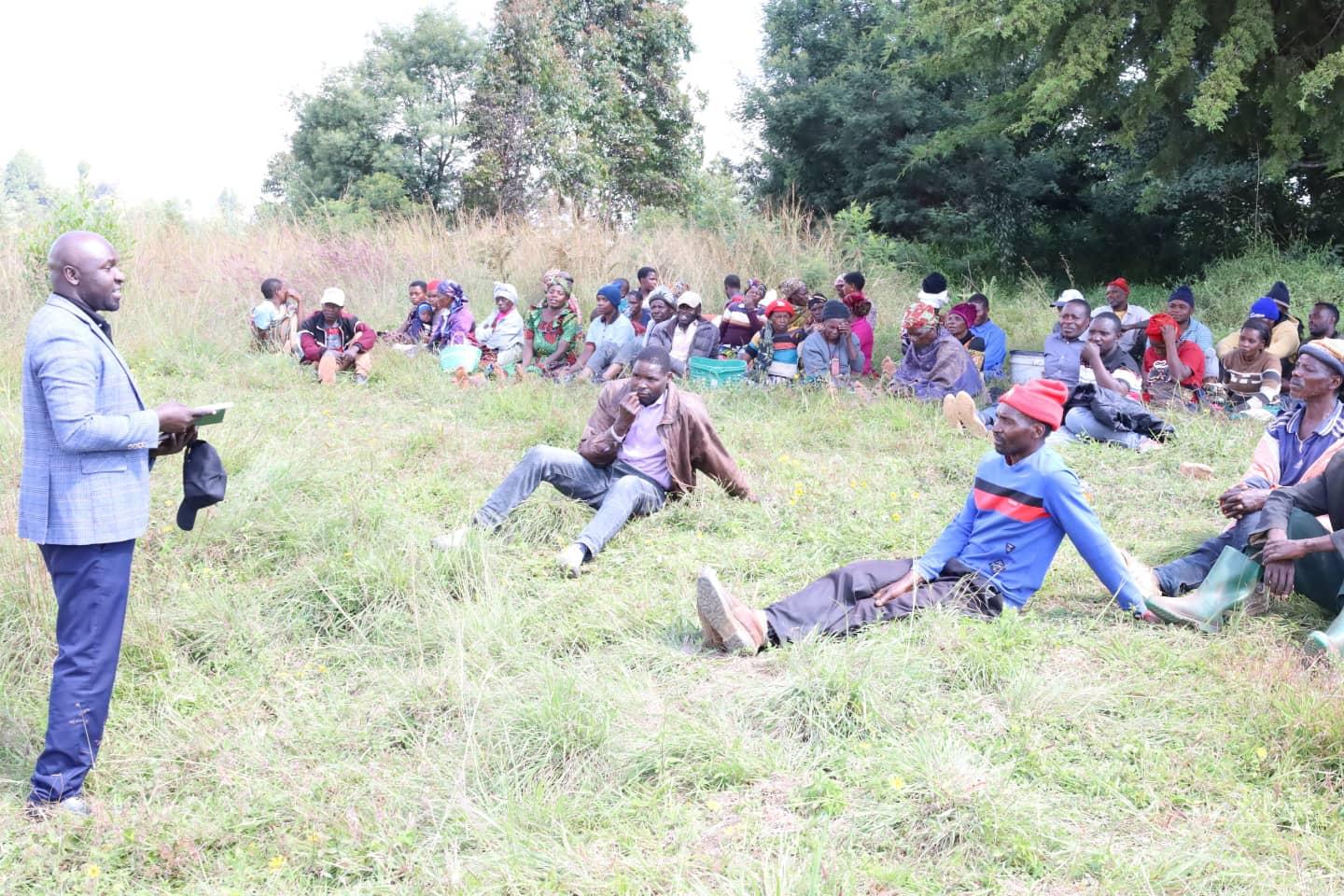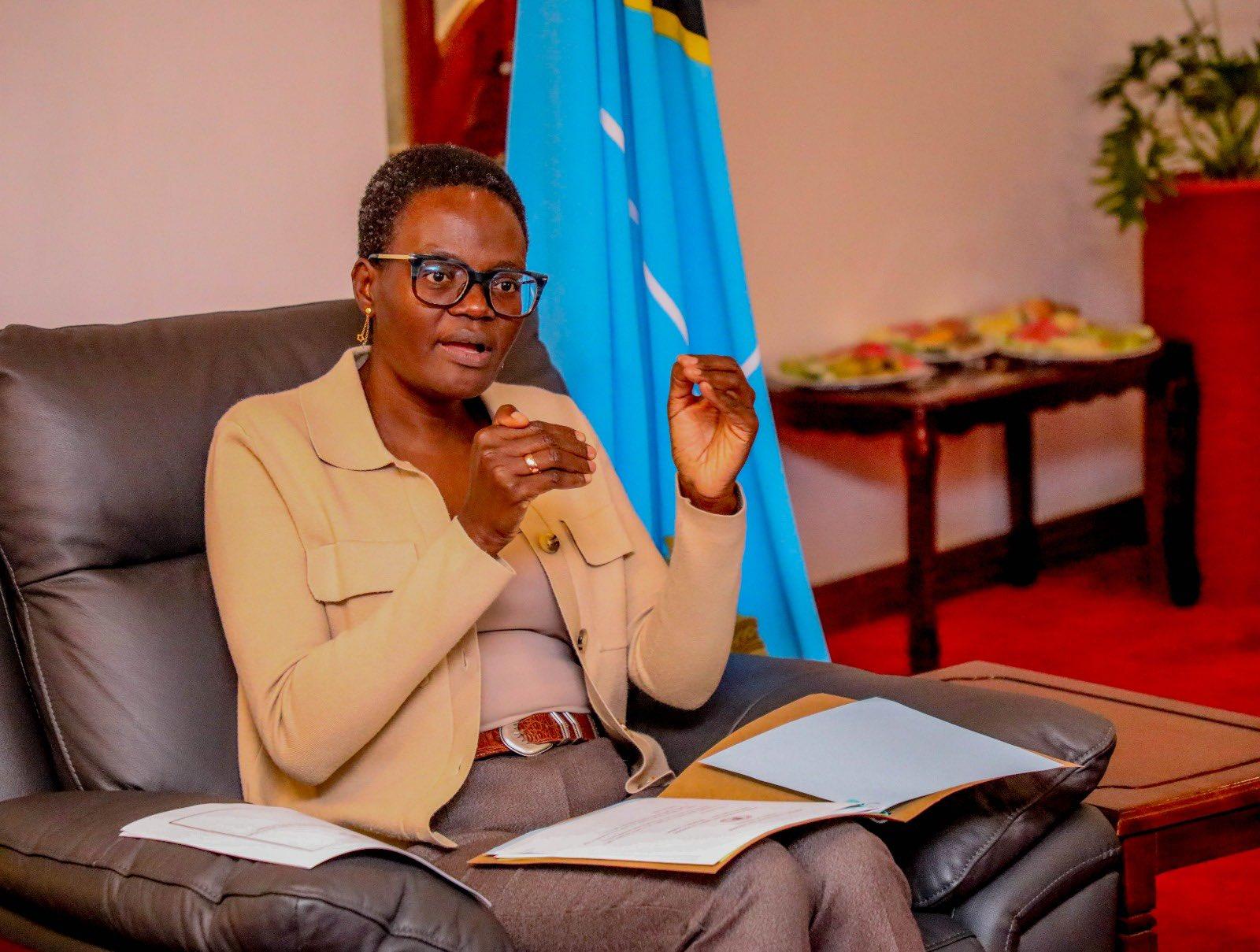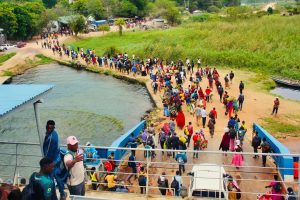Society
One of the most distinctive aspects of late-twentieth century globalization is that many of its predominant features especially the reinforcement of trade liberalisation institutions and the growing ability of national-states and corporate capital to exercise off-shore veto of domestic social and environmental legislation are challenged directly and aggressively by a global-scale social movement, the anti-corporate globalization movement headed by Anarchists.
-
- Forum
- Topics
- Freshness
-
-
TanzaniansThe world of Tanzanians
- 37
-
-
- Topic
- Voices
- Freshness
-
-
The residents of Kisesa Ward in Magu District have extended their gratitude to the Honourable President, Dr. Samia Suluhu Hassan, for her role in the construction of a new primary and secondary school in the village of Idugija. The project, which cost in excess of Tshs, has been hailed as a significant investment in the local community. The sum of 540 million was made available through the BOOST project.
- 1
-
The President of the United Republic of Tanzania Hon. Dr. Samia Suluhu Hassan in conversation with the Chairman of the National Committee of the Chinese People's Political Consultative Council Hon. Wang Huning, Beijing in China on September 04, 2024.
- 1
-
On the 5th of August 2024, the Chief Commissioner of the Tanzania Revenue Authority (TRA), Mr. Yusuph Mwenda, accompanied by the Deputy Chief Commissioner, Mr. Mcha Hassan Mcha, and other leaders of TRA, undertook an excursion to the oil area located inside the port of Dar es Salaam.
- 1
-
The Head of Mtwara District, Hon. Mwanahamisi Munkunda, has constituted a committee of 11 individuals, comprising traders from the Mkanaredi Stand and members of his office staff. This committee will be operational for a period of seven days, commencing on 12 August 2024, with the objective of addressing the concerns raised by traders.
- 1
-
The Deputy Minister of Livestock and Fisheries, Hon. Alexander Manyeti, has urged government institutions participating in the International Farmers' Exhibition (NaneNane) to adopt an innovative approach and showcase exemplary products.This, he believes, will enable the private sector to benefit from their expertise.
- 1
-
Empowering Future Generations: Animal Husbandry Training at Kawe Ukwamani Secondary School On 18 July 2024, a noteworthy occurrence took place at Kawe Ukwamani Secondary School, situated in the dynamic Kawe Ward of Dar es Salaam. This day marked a pivotal moment for the students, who received comprehensive training in animal husbandry courtesy of the dedicated officers from the Kinondoni Municipal Council's Animal Husbandry Department. The objective of this initiative was twofold: firstly, to impart essential skills, and secondly, to inspire a new generation of agriculturalists and animal care experts. The Importance of Animal Husbandry The practice of animal husbandry, defined as the breeding and raising of livestock, constitutes a fundamental pillar of sustainable agriculture. It plays a pivotal role in ensuring food security, maintaining economic stability, and promoting rural development. The objective of the training was to equip students with the requisite knowledge and skills to foster a deeper understanding of the significance and potential of the agricultural sector. Setting the Stage: Kawe Ukwamani Secondary School Kawe Ukwamani Secondary School, nestled in the bustling Kawe Ward of Dar es Salaam, is renowned for its commitment to holistic education. The school has consistently strived to provide its students with opportunities that extend beyond traditional academic curricula. The animal husbandry training was a testament to this commitment, reflecting the school's dedication to nurturing well-rounded individuals prepared to tackle real-world challenges. The Training Program: A Comprehensive Overview The training program was meticulously designed to cover various aspects of animal husbandry, ensuring that students gained a well-rounded understanding of the field. The officers from the Kinondoni Municipal Council's Animal Husbandry Department brought with them a wealth of knowledge and experience, making the training both informative and engaging. Introduction to Animal Husbandry The training commenced with an introduction to the fundamentals of animal husbandry. Students were introduced to the different types of livestock commonly raised in Tanzania, including cattle, goats, sheep, and poultry. The officers emphasized the importance of selecting the right breeds for specific purposes, such as milk production, meat, or wool. Nutrition and Feeding Practices One of the critical components of animal husbandry is ensuring that livestock receive proper nutrition. The training delved into the dietary requirements of various animals, highlighting the significance of balanced diets for optimal growth and productivity. Students learned about different types of feed, including forages, concentrates, and supplements, and how to formulate nutritious rations. Health Management and Disease Prevention Maintaining the health of livestock is paramount in animal husbandry. The officers provided insights into common diseases that affect livestock in the region and effective preventive measures. Students were taught how to identify symptoms of illness, administer basic treatments, and implement biosecurity practices to prevent the spread of diseases. Breeding and Reproduction Understanding the principles of breeding and reproduction is essential for successful animal husbandry. The training covered topics such as selecting breeding stock, artificial insemination, and managing breeding cycles. Students gained valuable knowledge on how to improve the genetic quality of their livestock and enhance productivity. Housing and Farm Management Proper housing and farm management practices are crucial for the well-being of livestock. The officers demonstrated how to design and construct suitable animal shelters, ensuring adequate ventilation, lighting, and space. Students also learned about waste management, hygiene practices, and the importance of maintaining a clean and organized farm environment. Hands-On Experience: Practical Sessions To reinforce the theoretical knowledge, the training program included practical sessions where students had the opportunity to apply what they had learned. These hands-on activities were designed to provide a real-world experience and enhance the students' confidence in handling livestock. Feeding and Nutrition Demonstrations During the practical sessions, students participated in feeding and nutrition demonstrations. They learned how to prepare and distribute different types of feed, ensuring that each animal received the appropriate diet. The officers guided them in assessing the nutritional needs of livestock based on factors such as age, weight, and production goals. Health Checkups and Vaccinations The students also had the chance to perform health checkups on livestock, under the supervision of the officers. They learned how to examine animals for signs of illness, take vital signs, and administer vaccinations. This hands-on experience was invaluable in helping students develop the skills needed to maintain the health and well-being of their livestock. Breeding Techniques and Record Keeping Practical sessions on breeding techniques allowed students to observe and participate in activities such as artificial insemination and pregnancy diagnosis. They were taught the importance of record keeping in animal husbandry, including tracking breeding cycles, health records, and production data. This comprehensive training program at Kawe Ukwamani Secondary School not only equipped students with essential skills in animal husbandry but also inspired them to consider careers in agriculture and animal care. By investing in the education and training of young individuals, the Kinondoni Municipal Council's Animal Husbandry Department is fostering a new generation of agriculturists who will contribute to the sustainable development of the agricultural sector in Tanzania.
- 0
-
Dr. Charles Msonde, Deputy Secretary General of the Office of the President, has continued his visit to the Tabora region. On 16 June 2024, he visited the Uyui District, where he held a meeting with education managers at the Council, ward, school principals, head teachers, primary school teachers, and secondary school teachers. He also met with other stakeholders. During the meeting, he reiterated the importance of motivating teachers and emphasised the need for them to adopt a more engaging approach to teaching. He encouraged them to focus on developing students' language skills, which he believes will facilitate a more rapid understanding of the subject matter.
- 1
-
The HIV and MSY Control Committee Training, inaugurated by Secretary General Office of the Prime Minister Policy, Parliament and Coordination Dr. Jim Yonazi on 16 June 2024 at the Office Hall in Dodoma, is designed to enhance the capacity of participants to address the challenges associated with the control of HIV and MSY.
- 1
-
Minister of Natural Resources and Tourism, Hon. Angellah Kairuki (Mb), met and held discussions with the Minister of Tourism and Economy of the Republic of Indonesia, Hon. Sandiaga Salahuddin Uno, earlier today. The two ministers discussed various issues of cooperation in the natural resources and tourism sector.
- 1
-
The Speaker of the Parliament of the United Republic of Tanzania, Hon. Dr. Tulia Ackson, presided over the Steering Committee Session for the Summary of Budgetary Issues before the reading of the Central Government Budget, held at the Speaker's Hall, Parliament in Dodoma today on 11 June 2024.
- 1
-
The events depicted that occurred on 6 June 2024 during the questioning of the Prime Minister, Hon. Kassim Majaliwa,at the Fifteenth Meeting, Forty-Second Session of the Twelfth Parliament, held in Dodoma.
- 1
-
On 6 June 2024, Dr. Anna Makakala paid a visit to the office of the Mbeya Regional Commissioner, Hon. Juma Homera, in Mbeya. She greeted him before the Medal Dressing Ceremony for Immigration Officers and Soldiers in the Southern Highlands Region.
- 1
-
The citizens of Makete District have petitioned the government to enhance the compensation provided to individuals who sustain injuries or become permanently disabled. They have also requested that the government increase the compensation for families who have lost a sibling due to the killing or destruction of crops and wildlife. The current compensation level is deemed inadequate to account for the damage to wildlife.
- 1
-
The people of Lupila Village in Lupila Ward in Makete District have expressed concern about the impact of monkeys and ngedere animals on their livelihoods. These animals have become a threat by destroying crops and threatening peace.
- 1
-
The Speaker of Parliament, Hon. Dr. Tulia Ackson, chaired the meeting of the leadership committee that considered the proposals for the schedule of additional activities in the fifteenth meeting of Parliament held today, 31 May 2024, at the Parliament in Dodoma.
- 1
You must be logged in to create new topics.
-



